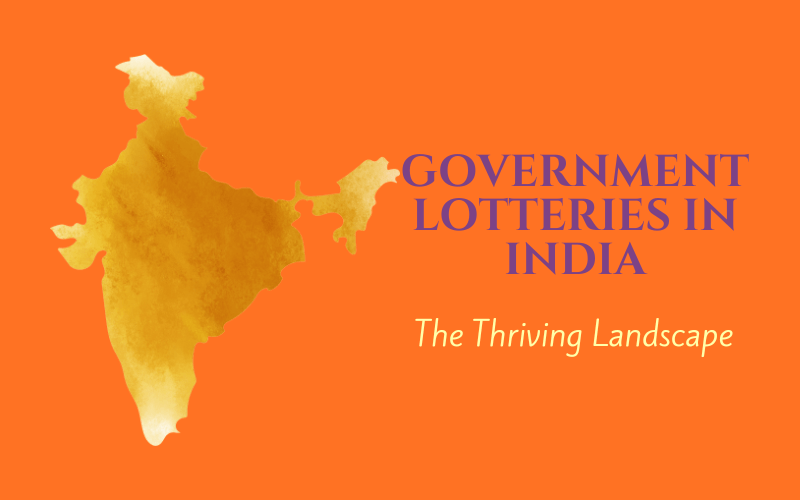
Government lotteries in India represent a captivating facet of the country’s socio-economic fabric. Rooted in a blend of tradition, entertainment, and the pursuit of fortune, these lotteries have held a significant position in Indian culture for decades. This comprehensive guide delves into the intricate details surrounding government lotteries in India, shedding light on their history, regulations, impact, and more.
The Historical Tapestry: Tracing the Origins of Government Lotteries in India

Government lotteries in India trace their roots back to ancient times, where they were often used to fund public projects, including the construction of temples, roads, and educational institutions. The concept evolved over the centuries, gaining popularity during British colonial rule and flourishing post-independence.
Legal Framework: Understanding the Regulations
Lotteries in India are governed by a complicated legal framework that varies from state to state. Some states see lotteries as a legal way to make money, but others have tight rules or outright bans. The Lotteries (Regulation) Act of 1998 provides overarching guidelines for the operation and management of lotteries in India, ensuring transparency, fairness, and consumer protection.
Types of Lotteries: Diverse Offerings for Every Player
Indian government lotteries offer diverse games to cater to players’ preferences nationwide. There is something for everyone, from traditional draw-based lotteries to innovative online formats. Some popular types of lotteries include:
- Draw-Based Lotteries
- Instant Lotteries
- Online Lotteries
- Bumper Lotteries
Each type of lottery offers unique features and prize structures, allowing players to test their luck and win big.
Socio-Economic Impact: Fostering Development and Welfare
Beyond the thrill of winning, government lotteries in India are pivotal in driving socio-economic development and supporting various welfare initiatives. A substantial amount of the revenue generated from lottery sales is allocated towards funding crucial sectors such as education, healthcare, infrastructure, and social welfare programs. By channeling funds towards these areas, lotteries contribute to society’s overall progress and well-being.
Challenges and Controversies: Navigating the Terrain
While government lotteries in India offer numerous benefits, they have challenges and controversies. Critics argue that lotteries can lead to issues such as addiction, financial strain, and exploitation of vulnerable populations. Additionally, concerns regarding transparency, fraud, and illegal operations have surfaced, prompting authorities to enforce stricter regulations and oversight mechanisms.
Future Prospects: Embracing Innovation and Sustainability
As India strides forward in the digital era, the future of government lotteries lies in embracing innovation and sustainability. With technological advancements reshaping various sectors, the lottery industry is poised to leverage digital solutions to enhance accessibility, transparency, and security. Integrating blockchain technology, mobile applications, and online platforms holds immense potential in revolutionizing how lotteries are conducted, ensuring greater convenience for players while minimizing the risks of fraud and manipulation. By embracing these innovations, government lotteries can reach a wider audience, cater to evolving consumer preferences, and foster a more inclusive and dynamic gaming environment.
Moreover, sustainability will play a pivotal role in shaping the future trajectory of government lotteries in India. As concerns regarding environmental conservation and social responsibility gain prominence, there is a growing emphasis on adopting sustainable practices across all industries, including gaming. Government lotteries can lead by example by implementing eco-friendly initiatives such as paperless ticketing, renewable energy usage, and responsible gaming programs. By prioritizing sustainability, lotteries can reduce their carbon footprint, strengthen their credibility, enhance public trust, and contribute to society’s well-being.
Conclusion: A Tapestry of Tradition and Progress
Government lotteries in India embody a rich tapestry of tradition, innovation, and socio-economic impact. From humble origins to modern-day manifestations, these lotteries continue to captivate the imagination of millions across the country. As we navigate the complexities of regulation, address challenges, and embrace technological advancements, India’s future of government lotteries remains exciting and promising.



